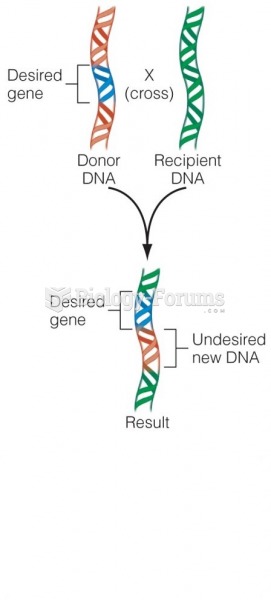|
|
|
Asthma occurs in one in 11 children and in one in 12 adults. African Americans and Latinos have a higher risk for developing asthma than other groups.
There are more sensory neurons in the tongue than in any other part of the body.
Amphetamine poisoning can cause intravascular coagulation, circulatory collapse, rhabdomyolysis, ischemic colitis, acute psychosis, hyperthermia, respiratory distress syndrome, and pericarditis.
It is believed that humans initially contracted crabs from gorillas about 3 million years ago from either sleeping in gorilla nests or eating the apes.
Illness; diuretics; laxative abuse; hot weather; exercise; sweating; caffeine; alcoholic beverages; starvation diets; inadequate carbohydrate consumption; and diets high in protein, salt, or fiber can cause people to become dehydrated.
 Evolutionary ecologists live and do research in contemporary cultures that maintain all or some aspe
Evolutionary ecologists live and do research in contemporary cultures that maintain all or some aspe
 This chart shows the various lines of responsibility and how they differ in presidential and parliam
This chart shows the various lines of responsibility and how they differ in presidential and parliam





